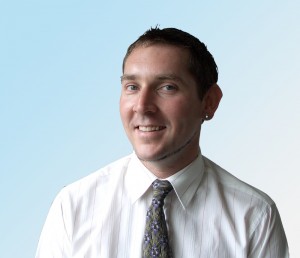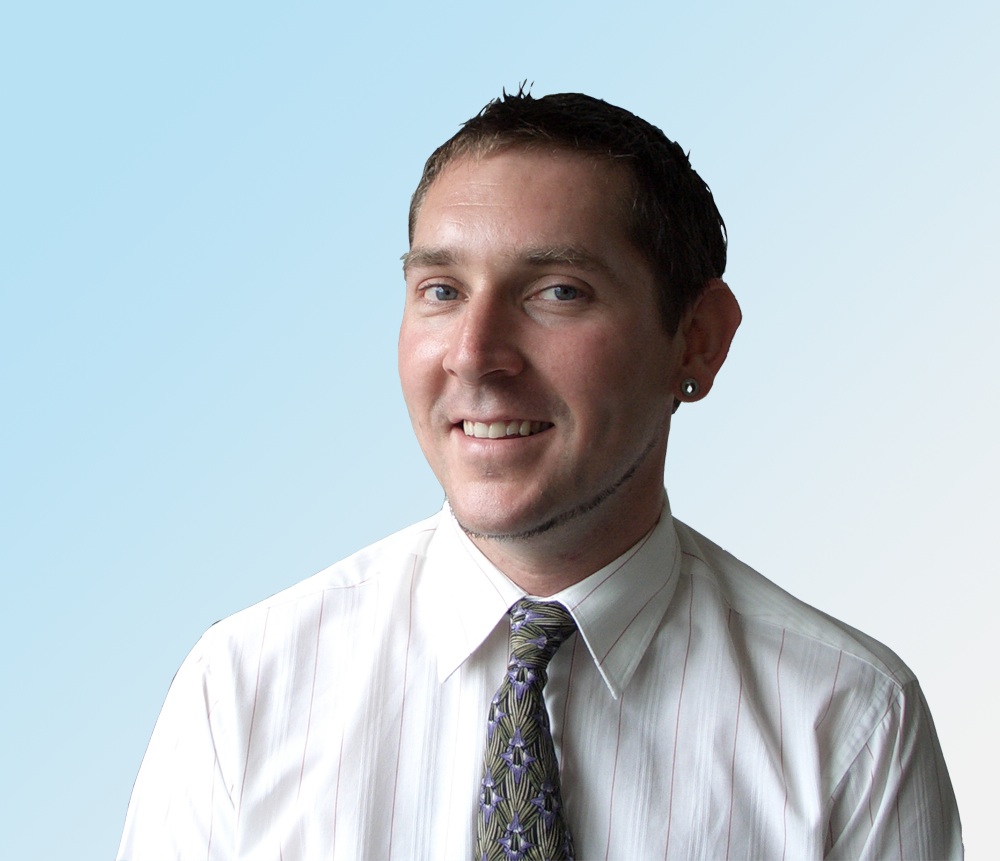
Great Lakes United Executive Director Derek Stack
Note: This is the third of a five-part Friday series highlighting some of the behind-the-scenes players who shape Great Lakes policy. Previously profiled: Joy Mulinex and David Ullrich.
Fifteen ships each 100 feet tall and with up to 30 sails will race on Great Lakes waters this summer. The wind will power these replicas of centuries-old vessels to Toronto, Cleveland, Bay City, Duluth, Green Bay and Chicago. Aside from the appearance of an invasion from a ghost armada, the ships will carry a message of water conservation and protection to about 5 million people.
It’s a flag that Derek Stack flies every day through his work as executive director of Great Lakes United, a coalition of about 150 U.S.-Canadian groups that advocates protecting and conserving the Great Lakes-St. Lawrence River environment.
From his office on Ottawa, the landlubber says Great Lakes United wanted to find a “happy place” from which to talk about water efficiency issues. That’s why it teamed with the American Sail Training Association for this summer’s tall ship races.
“People will be enjoying themselves,” Stack says. “They’ll be with their family having a good time. And we thought it was a perfect opportunity to deliver a conservation message.”
The group will partner with the American Sail Training Association and local groups to blend a big-picture message of Great Lakes water conservation with local ideas on how to use water more efficiently.
The United States and Canada are the top two water users in the world.
“We in the Great Lakes are gluttons,” he says.
Echo caught Stack writing a grant proposal. It is clear, his peers say, that he’ll never suffer from writer’s block on the subject of Great Lakes protection. He knows the issues up, down and sideways.
The Lakes aren’t running out of water. The problem “is that we’ve never expanded our sewage infrastructure,” he says. “So when it rains we have tremendous sewer overflows because our infrastructure can’t handle the volume.” He says that the Canadian nonprofit group Ecojustice estimates that about 92 billion liters of raw sewage is released annually in the region.
“[People are] willing to actually maybe change their behavior to address that fact,” he says.
Stack’s organization takes strong stands on contentious issues, like the imminent invasion of Asian carp into the Great Lakes. Great Lakes United is demanding that the U.S. Army Corps of Engineers and the state of Illinois immediately close the locks that could allow the carp’s passage.
So far, that hasn’t happened. And it frustrates Stack.
“The carp is one of those things where we’ve been clamoring for decades, saying ‘this is going to be a problem, let’s do something,’” he says. “And nobody’s done anything.
“I mean the Obama administration – I don’t think shock is too strong a word – but definitely surprised Great Lakes advocates regionally when they didn’t support closing the shipping lane down,” and by not reviewing the ecologic separation of the Great Lakes and Mississippi River basins, he says.
He says government inaction serves to pad the profit margins for one or two privately held shipping companies.
“It’s really not fair,” he says.
The carp issue is one of many that the organization is working to address with governments and advocates on both sides of the border. Another is promoting policies for zero-discharge of toxins in the watershed.
Stack says the two countries’ inability to coordinate policy efforts in part attracted him to Great Lakes United from the Canadian Environmental Network, where he served as interim national director from 1998-2004.
“I was tired of watching industrial interests basically bounce one government off the other in pursuit of the lowest-common-regulatory denominator,” he says. He wanted to see how Great Lakes advocates could foster a shared understanding of the issues.
He’s found success, having helped find common ground between stakeholders in a formal advisory role in the Annex Agreements, that led to the Great Lakes Compact, a binding agreement between the U.S. and Canada that restricts large-scale diversions from the Great Lakes basin. And he oversaw the most comprehensive public opinion research ever done in the region.
“He’s sort of a Great Lakes ambassador,” says Fe de Leon, a researcher at the Canadian Environmental Law Association. “His job is to basically promote the dialogue that needs to happen on Great Lakes issues with both governments, and certainly dealing with states and provinces as well … And it takes a very unique personality to be able to deal with the nuances of those dynamics.”
Stack says cultural and geographic divisions can make that work challenging.
“Canadians are delusional that ‘it’s our water,’” he says. “It’s like ‘the Americans are coming to steal our water.’ We’re constantly telling them that the water flows, for the most part, west to east. It belongs to both countries.”
Conversely, Americans tend to think the whole world lies in their borders, he says.
“It’s very difficult to get folks to adopt public messaging that is appropriate and suitable,” he says. “For instance, ‘The Great Lakes are a U.S. national treasure,’ – that’s offensive to a lot of Canadians. But it’s language that works in the U.S.”
Some say that Stack’s influence has shifted his organization’s focus. Longtime Great Lakes environmental advocate Lee Botts questions the degree to which Great Lakes United acts in a bi-national way.
“Frankly, under Derek’s leadership, it has not been active on the American side,” she says. She says Stack abolished the organization’s Buffalo office, which contributed to its “reduction of influence” in America.
“She’s right that we have a diminished role, for sure, than what we had” in the ’80s in America, Stack says. But he says he closed the Buffalo office largely due to its lease ending shortly after he took over in 2004 – the office is again operating. He says the organization intentionally ceded some of its American focus to the Healing Our Waters Coalition after that group formed with $5 million in seed money to focus on Great Lakes restoration on the American side.
Great Lakes United is on the steering committee for the Healing Our Waters Coalition. And Stack says the two organizations have distinct roles – the Coalition focuses on shaping legislation, while Great Lakes United tries to shape public opinion.
“There’s so much work to do in the Great Lakes that there’s plenty for each and every one of us,” he says.
People who work with Stack says his sense of humor makes it easier to toil on often divisive, frustrating issues.
“He just knows how to crack a joke every once in a while that cracks everybody up and makes it easier to keep working,” says Mary Muter, Georgian Baykeeper from Georgia Bay Forever who served previously on the Great Lakes United board.
Jill Ryan, executive director of Freshwater Future, says her organization often partners with Stack and Great Lakes United, including on Asian carp. While others stumble around thorny preliminary issues, Stack thinks in terms of end results, she says.
“[He’s likely to say], ‘Look, it doesn’t matter. This is what we have to do. How do we make it happen?’”
